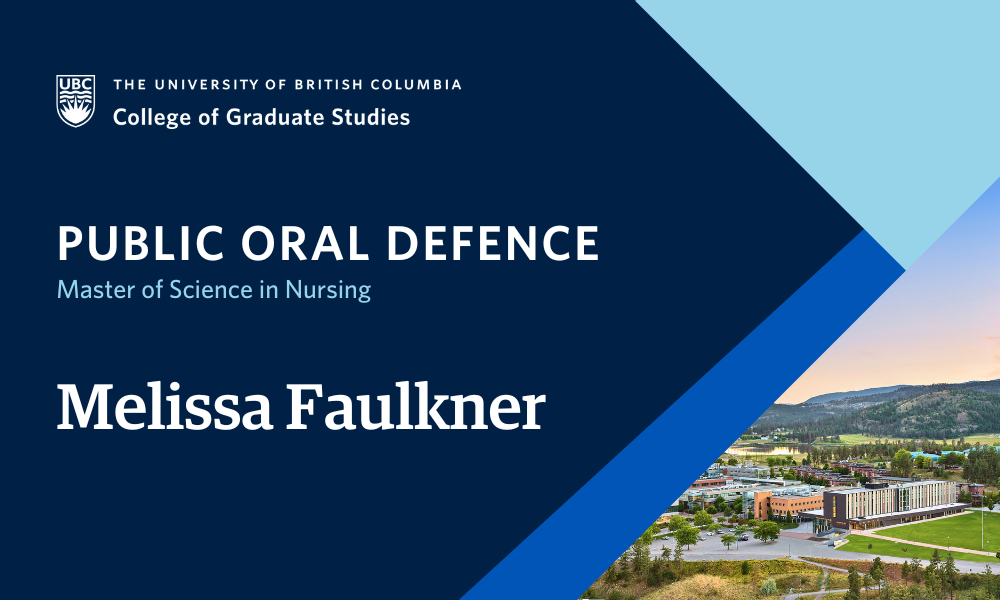
- This event has passed.
Thesis Defence: Defining Healthcare Harm From the Patient Perspective
September 3 at 10:00 am - 2:00 pm

Melissa Faulkner, supervised by Dr. Nelly Oelke, will defend their thesis titled “Defining Healthcare Harm From the Patient Perspective” in partial fulfillment of the requirements for the degree of Master of Science in Nursing.
An abstract for Melissa Faulkner’s thesis is included below.
Defences are open to all members of the campus community as well as the general public. Please email nelly.oelke@ubc.ca to receive the Zoom link for this defence.
ABSTRACT
Background. Harm to patients in healthcare is a leading cause of morbidity and mortality worldwide due to the high incidence and impacts. It has devastating effects on patients, families, caregivers (hereto referred to as patients), communities, and healthcare providers and systems. Healthcare harm is perpetuated by being largely defined by provider/system priorities. Several broader definitions are partially informed by patients, but do not capture the breadth of the patient’s lived experience.
Methods. This study sought to answer the question: How is healthcare harm defined by patients who have experienced healthcare harm? Utilizing integrated knowledge translation and patient-oriented research in this patient led study, we partnered with an international patient advisory committee (PAC) and participants who all had lived experience with healthcare harm. Three eDelphi rounds were used to facilitate a consensus process on both fit and priority of components of harm that were generated from the literature, PAC, and participants.
Results: The final round revealed six domains of healthcare harm with 21 components describing types/causes of harm including physical, psychosocial, discriminatory, compounded, communication, institutional/system factors. Six domains with three subdomains and 35 components described impacts of harm including physical; psychological; social/behavioural with subdomains of altered health seeking behaviours, life disruption, and impact on family, friends and community; financial consequences; existential/spiritual; and lack of response and justice. Utilizing the survey results, we collaborated with the PAC to create a definition.
Discussion: The definition emphasized misinformation/dishonesty around the harm event, poor communication, and loss of trust. Contextually, participants pointed out that repeated smaller harms are no less harmful than larger events; that harm is complex, cascading, and enduring; and that equity deserving populations tend to feel greater impact of harm. Although more voices need to deepen and broaden this definition, we hope this definition opens conversations that foster deeper understanding of how healthcare harm is experienced by patients. Recommendations were informed by the findings/the PAC that may lead to improved responses to harm by fostering a healthcare culture that partners with patients to both mitigate and respond to harm.